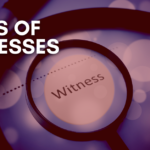To be a private investigator one needs a wide array of skills. Additionally, it requires very specific training; it’s a specialized job that requires one to wear many hats. Various different types of private investigators specialize in certain sectors of society. Even then, however, cases can vary wildly from each other. Hence why PIs always remain prepared for any eventuality. The high demands of this job are the reason many people transfer from other lines of work. For example, from the judicial system, insurance, or even law enforcement.
With that in mind, one might wonder what do private investigators do? How might we describe their job?
First of all, private investigators do detective work, which is predominantly research based but can also involve work on the field at times. It is possible for them to work on their own or with an agency, like we do here at Advantage Investigations. Here at Advantage we collaborate mainly with attorneys and law firms. Other agencies or PIs, however, may collaborate with law enforcement, accountants, corporations and insurance companies, etc. Some might specialize in particular skills sets such as forensic computer investigation, preparation of evidence for court, expert witness testimonies, fraud investigations, serving documents and tracking people down, or general investigative services. Responsibilities and services can range far and wide.

What do private investigators do?
Most of the work a private investigator does involves the gathering of information and fact-finding, as well as the compiling of this information. There are a variety of ways they can do this, for example:
- Computer and database searches (both public and private subscription based models)
- Surveillance
- Conducting interviews, this could be witnesses or suspects
- Going undercover
- Corroboration of accounts and other fiscal information

The list could go on endlessly, but these are the most commonly used sources of information for PIs. Other responsiblities a private investigator often holds include:
- Preparing reports of an ongoing or completed investigation
- Conducting background checks
- Gathering intelligence
- Providing security and surveillance services
- Providing a testimony or expert witness testimony in court
- Assisting in local missing persons cases
- Interviewing witnesses and checking the reliability
- Delivery of important documentation, often legal documents such as subpoenas
- Compilation and preparation of evidence for us in court
In spite of not being government agents, private investigators are permitted to gather information for criminal investigations. Any information they can gather can be used in court, and often makes a huge difference on many cases. If you find yourself in need of a licensed private investigator and their particular set of skills, please feel free to call us. Or simply click on this link to get in contact with one of our team members.









